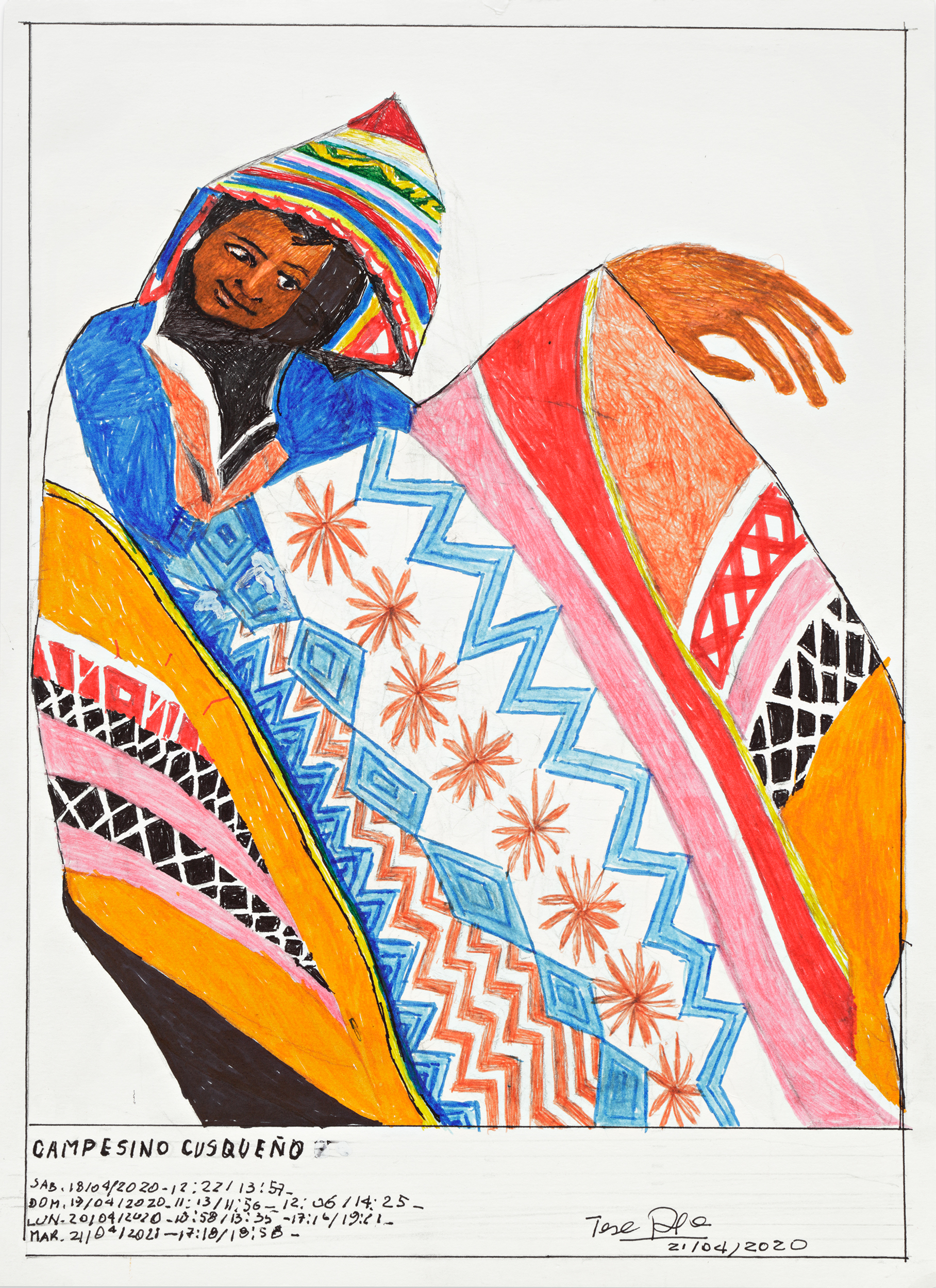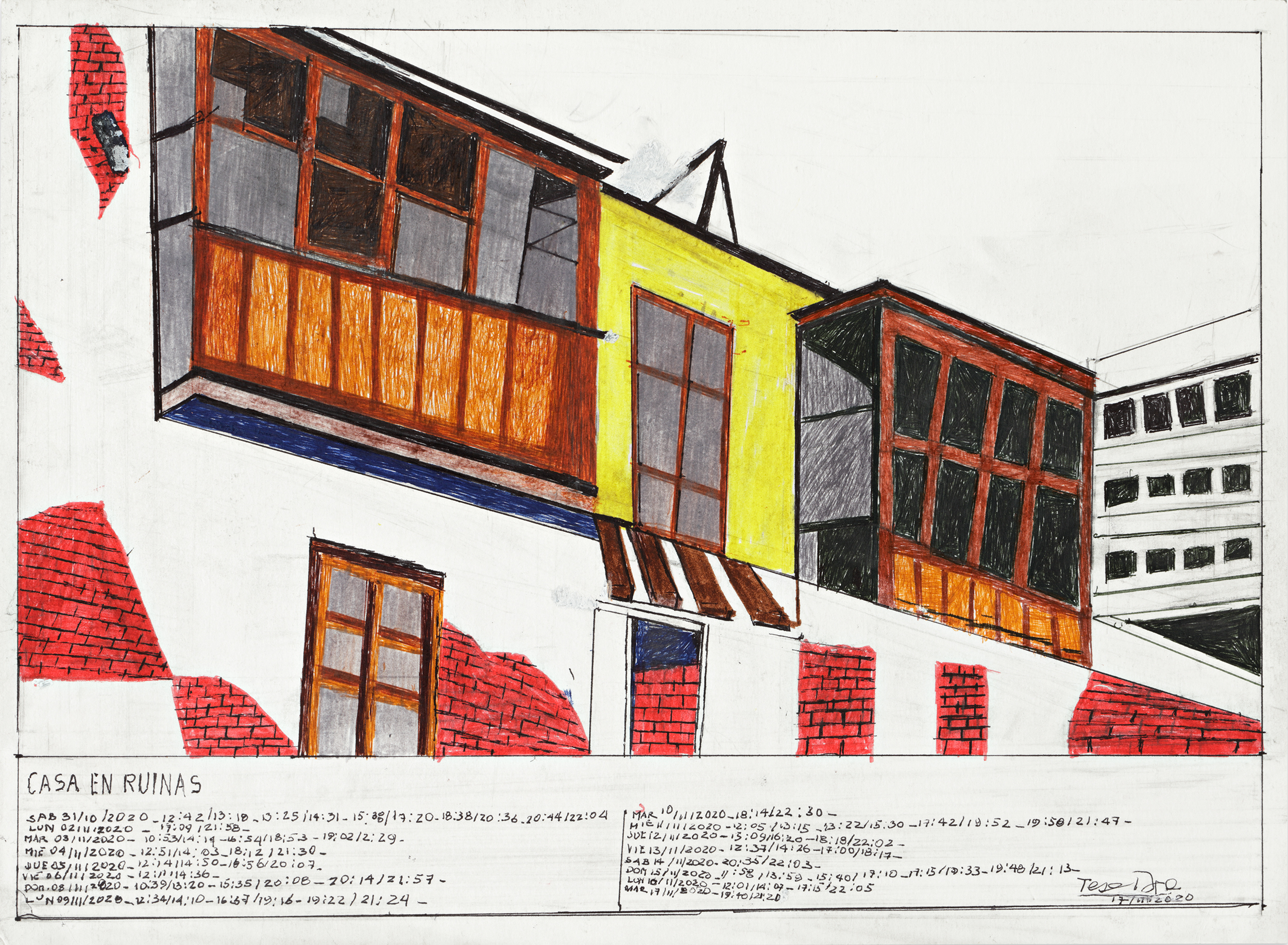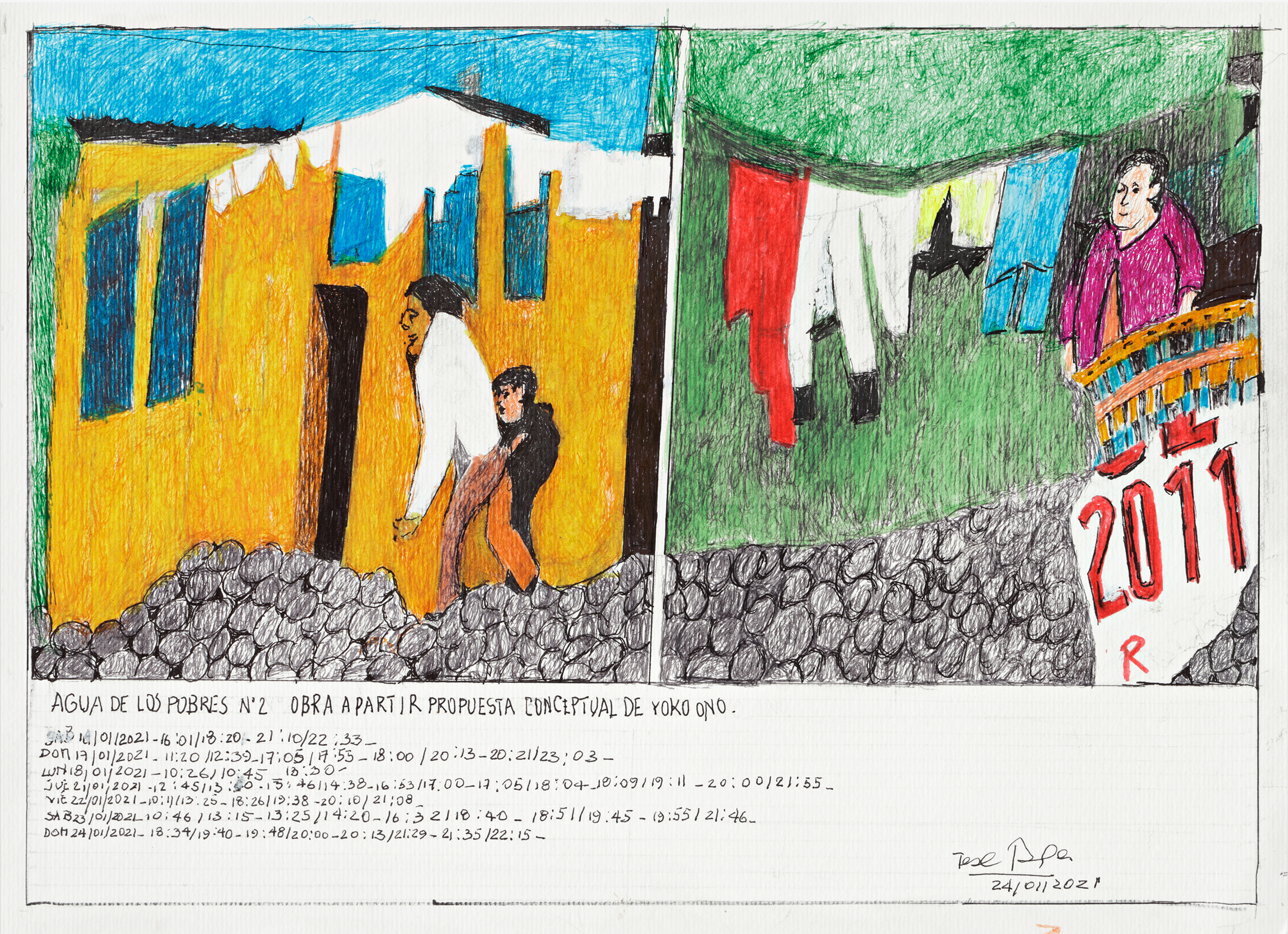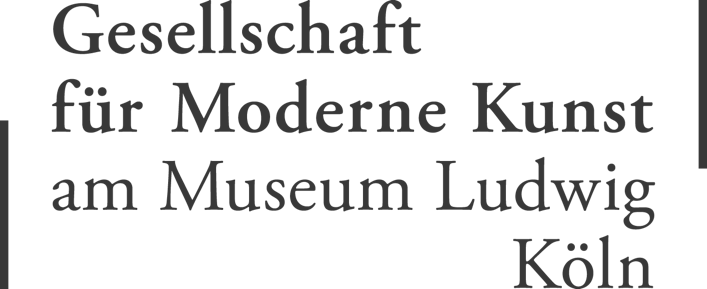Perlensucher
Teresa Burga - Campesino Cusqueño 7, 2020 // Casa En Ruinas, 2020 // Agua De Los Pobres No 2 Obra A Partir Propuesta Conceptual de Yoko Ono, 2021
2021
Teresa Burga (*1935 in Iquitos; † 2021 in Lima, Peru) studied painting at the Catholic University in Lima (1962-1964) and then on a scholarship at the Art Institute of Chicago. After her art studies, Burga turned to experimental art forms. Between 1966 and 1967, she joined the Arte Nuevo (New Art) group, which paved the way for a radical redefinition of Peru’s artistic landscape. Teresa Burga is one of the early representatives of installation art in Peru. In the 1970s, she created expansive analytical works that focused on the properties and effects of information, language and audio-visual media. Her work also focuses on the examination of mass culture, the construction of identity and femininity as well as the mechanization and bureaucratization of work and leisure. Also noteworthy are her graphics and displays created as part of interdisciplinary research projects, which locate Teresa Burga’s artistic practice both in the field of communication design and “artistic research”.



Erwerbungen Perlensucher 2021
Through the Perlensucher initiative at the Museum Ludwig, a total of three works on paper by Teresa Burga were acquired in 2021. The Museum Ludwig is supplementing the collection with the purchase of three further works from the series. The colorful drawings refer to the cultural heritage of Peru. The work Campesino Cusqueño 7, for example, shows a farmer from Cusco in traditional garb. The work on paper Casa En Ruinas from 2020 shows a house façade with partially broken windows and crumbled walls. The dreary ambience is broken up by an accent of color, as part of the façade is painted a bright yellow. The work Agua De Los Pobres No 2 Obra A Partir Propuesta Conceptual de Yoko Ono shows a washing line on which freshly washed laundry is hanging. The title refers to Yoko Ono’s idea that all people, like drops of water in the ocean, fit together on an equal footing to form a whole.
